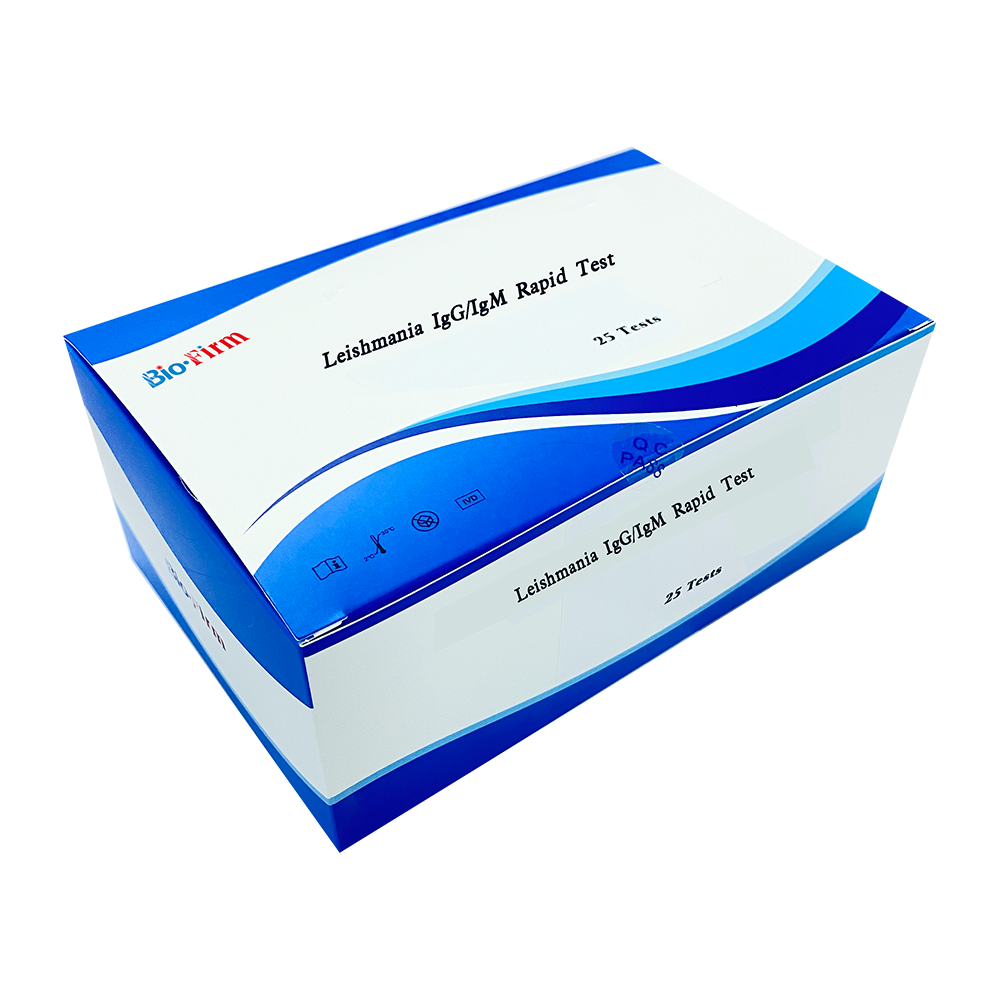Jul 01,2022
The Leishmania IgG/IgM rapid test is a valuable diagnostic tool for detecting leishmaniasis, but like any diagnostic test, it has potential limitations, particularly concerning false positives and false negatives. These limitations can impact the reliability and accuracy of the test results. Here are some key factors contributing to these issues:
1. False Positives:
False positives occur when the test indicates an infection despite the absence of the disease. Several factors can contribute to false positives in the Leishmania IgG/IgM rapid test:
Cross-Reactivity with Other Infections: The test may cross-react with antibodies from other parasitic, bacterial, or viral infections. For example, diseases such as tuberculosis, malaria, or chronic viral infections (e.g., HIV) may trigger the immune response in a similar way to Leishmania, leading to false positives.
Previous Exposure or Past Infections: Individuals who have had a prior infection with Leishmania but are no longer infected (or have a resolved infection) may still show IgG antibodies. Since IgG antibodies persist for a long time, these individuals might test positive even if they no longer have active disease.
Autoimmune Disorders: Conditions that cause the body to produce antibodies against its own tissues (such as lupus or rheumatoid arthritis) may cause an immune reaction that interferes with the test, leading to false positives.
Poor Test Specificity: Some rapid tests may have limited specificity for the Leishmania species or antigens included in the test, increasing the likelihood of cross-reactivity and false positive results.
2. False Negatives:
False negatives occur when the test fails to detect the infection despite the presence of the disease. This can happen due to a variety of reasons:
Low Antibody Levels in Early Infection: In the early stages of infection, the body may not yet have developed significant levels of antibodies (IgG and IgM) detectable by the test. As a result, individuals with acute or recent Leishmania infection may test negative, even though they are infected.
Immunosuppressed Patients: People with compromised immune systems, such as those with HIV/AIDS, diabetes, or who are undergoing immunosuppressive treatments (e.g., chemotherapy or corticosteroids), may have a weakened immune response and may not produce detectable levels of IgG/IgM antibodies, leading to false negatives.
Test Sensitivity Issues: The sensitivity of the Leishmania IgG/IgM rapid test can vary depending on factors such as the test's quality, the stage of infection, or the type of Leishmania species involved. In regions where different strains or species of Leishmania prevail, a test designed for a specific strain may be less sensitive or even ineffective for other strains, increasing the likelihood of false negatives.
Timing of Sample Collection: If the sample is collected too early in the infection, before the body has had time to produce detectable levels of antibodies, a false negative result is more likely. Similarly, the timing of the test relative to the clinical presentation can influence the result. If the infection is in a latent or chronic stage, IgM may be absent, and IgG levels may not reach detectable thresholds.

3. Other Factors Contributing to Limitations:
Test Handling and Storage: Improper handling, storage, or expiration of the test kit can affect its accuracy. For example, exposure to excessive heat or humidity may degrade the reagents, leading to unreliable results.
User Error: The accuracy of the rapid test can be influenced by the proficiency of the person conducting the test. Misinterpretation of results or failure to follow the test protocol correctly can contribute to false positives or false negatives.
Testing in Non-Endemic Areas: In non-endemic regions where leishmaniasis is rare, false positives may occur due to low levels of Leishmania-specific antibodies, resulting in confusion or misdiagnosis.
4. Impact of False Results:
False Positive Impact: A false positive result could lead to unnecessary treatment, which may expose the patient to the side effects of anti-leishmaniasis drugs or cause psychological stress due to an incorrect diagnosis. It could also lead to overburdening healthcare resources with unnecessary follow-up testing or treatments.
False Negative Impact: A false negative result might delay appropriate treatment, allowing the infection to progress to a more serious or chronic form. It can also contribute to the ongoing transmission of the disease in the population, especially in high-risk areas.



 Español
Español
 Français
Français
 Deutsch
Deutsch
 عربى
عربى








